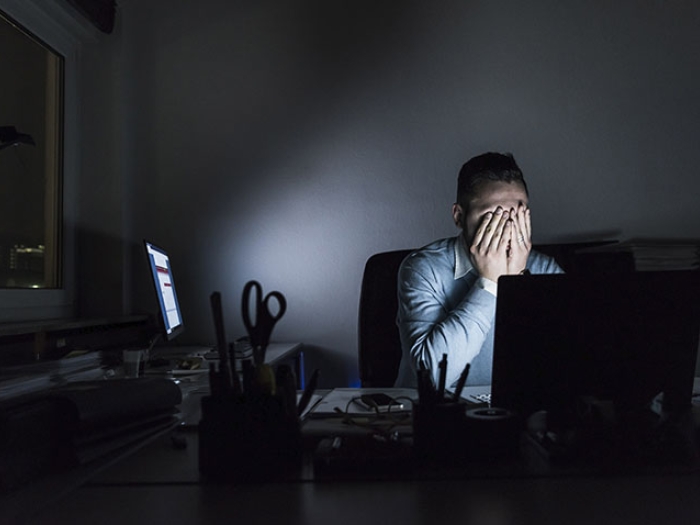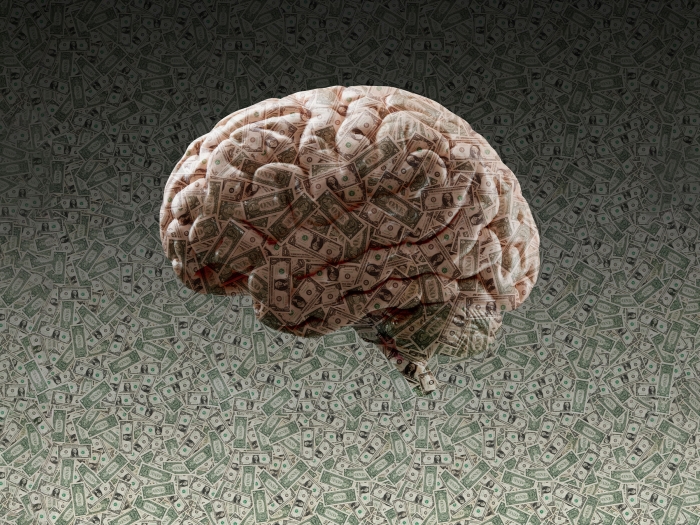A passing worry probably doesn’t mean you have anxiety. Living in a constant state of fear, however, could be a sign that coping techniques and counseling are needed.
7:00 AM
Author |

It's not uncommon to hear someone say "This gives me anxiety!" when experiencing something that makes them feel nervous or uncomfortable.
MORE FROM MICHIGAN: Sign up for our weekly newsletter
But feeling nervous and having an anxiety disorder are two very different things.
Characterized by excessive worry or fear, anxiety disorders can affect a person's ability to work, attend school and maintain relationships. Anxiety affects nearly one-third of adults at some point in their lives, according to the American Psychiatric Association.
Fortunately, the symptoms of anxiety can be treated.
"Anxiety is very treatable and manageable," says Bernard Biermann, M.D., Ph.D., a clinical assistant professor with the Department of Psychiatry at the University of Michigan. "You just have to take the first steps in seeking help."
He answered some common questions about anxiety disorders and what people should know if they experience them.
What are typical symptoms of anxiety?
Biermann: Generalized anxiety is characterized by feelings of worry, nervousness and fear. Physical symptoms may also accompany these feelings. These physical symptoms include difficulty sleeping, stomachaches and headaches.
If you experience these symptoms and are unable to think your way out of it, consider seeking help. Definitely seek help if anxiety symptoms affect your functioning at work, school or other activities that you enjoy.
What are the different types of anxiety one may be diagnosed with?
Biermann: One of the most common is generalized anxiety disorder, which is associated with excessive worrying. Panic disorder is when one experiences frequent panic attacks. Phobias are also a type of anxiety. Fear of flying, heights, small spaces or spiders are all very common phobias.
People with social anxiety tend to avoid situations where they will feel judged or worried of what people will think of them. Post-traumatic stress disorder (PTSD) and obsessive-compulsive disorder (OCD) are also types of anxiety one can be diagnosed with.
What is a panic attack?
Biermann: Panic attacks are sudden episodes of anxiety, distress or discomfort, sometimes combined with troubling physical symptoms that can mimic heart, digestive or neurological disorders. You really can't miss it.
SEE ALSO: Panic Attack vs. Anxiety Attack: 6 Things to Know
When people experience a panic attack, they often mistake it for a heart attack and visit an emergency room. However, once they learn it is a panic attack, they can begin recognizing the symptoms and reassure themselves.
It helps to recognize the early signs of a panic attack and start deep breathing exercises to prevent it from escalating. It is important to know that the attacks are not permanent and you will be OK.
What can someone with anxiety do to get help?
Biermann: The first step is recognizing that they have anxiety. Many people are hesitant to recognize anxiety and end up going to their family doctor describing physical symptoms and not realizing it may be an anxiety disorder.
Many people may also feel sensitive or in denial about an anxiety diagnosis, but once they learn what it is and how to treat it they typically start to feel better. If anxiety is severe, seeing a counselor or therapist regularly can also help.
How can a person manage anxiety independently?
Biermann: It is important to focus on your physical needs. Make sure you are getting enough sleep, eating right and exercising.
It is also important to learn to challenge yourself. Setting goals that push you out of your comfort zone will help you realize that you can take on the actions that trigger your anxiety. Someone with social anxiety, for example, can set a goal to go to Starbucks and order a coffee rather than making coffee at home.
As we learn more about the brain, there is a lot of research on the benefits of meditation. Slowing down, breathing deeply and being mindful can help you be more present. The more you are in the moment, the less you are thinking about the future or the past.
Often, people will overthink past events or what will happen in the future, which increases negative thoughts and anxious feelings. Bringing yourself to the present allows you to realize that there is very little right now that is threatening.
What is the best way to address the stigma associated with an anxiety diagnosis?
Biermann: Realize that anxiety is the most common mental health issue that people face regardless of age, so you are not alone. The more we know about anxiety and the more that we recognize it, there is not as much stigma that there used to be.
It is not that big of a deal to other people, so do not be afraid to share with your friends. You will find that having their support will be very helpful.
What is your advice for someone with anxiety?
Biermann: Do not avoid it. Push yourself to face what makes you anxious. You will realize the next time you face it, it won't be as bad. Essentially, you are proving your anxiety wrong. Instead of avoiding the situation that makes you anxious, use it to your advantage. A little bit of anxiety can actually be channeled into a better performance.

Explore a variety of health care news & stories by visiting the Health Lab home page for more articles.

Department of Communication at Michigan Medicine
Want top health & research news weekly? Sign up for Health Lab’s newsletters today!





